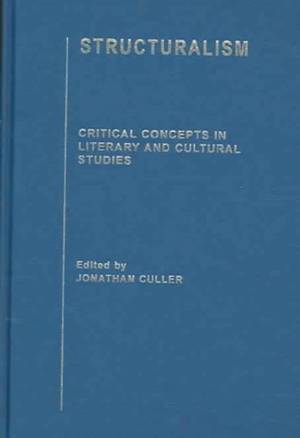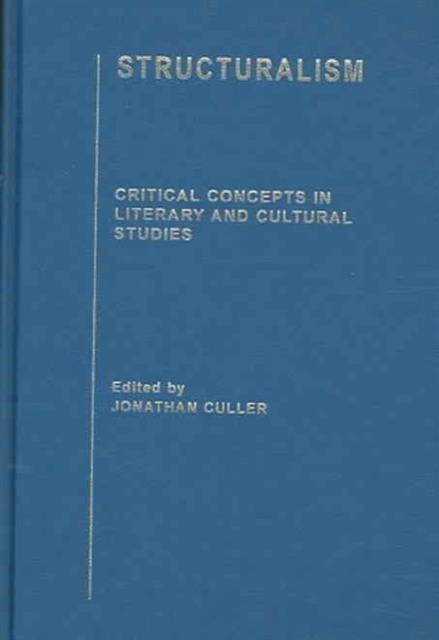
- Retrait gratuit dans votre magasin Club
- 7.000.000 titres dans notre catalogue
- Payer en toute sécurité
- Toujours un magasin près de chez vous
- Retrait gratuit dans votre magasin Club
- 7.000.0000 titres dans notre catalogue
- Payer en toute sécurité
- Toujours un magasin près de chez vous
Structuralism
Description
Structuralism is a broad intellectual movement in the humanities and social sciences that came to prominence in the 1960s. Representing the beginning of modern interdisciplinary work in what has come to be called "theory", it seeks not to explain the meaning of an object or event but to understand what made it possible.
Taking as their methodological model the successes of the structural linguistics inaugurated by Ferdinand de Saussure, a group of thinkers in such fields as anthropology, literary and cultural studies, sociology and philosophy developed ambitious programs for the interdisciplinary study of the systems by which human beings make the world intelligible.
Organized thematically, this four-volume collection explores the key areas of structuralism - and with a new introduction by the editor to guide the reader through the work, this is an essential collection of articles that provides a valuable research resource.
Spécifications
Parties prenantes
- Editeur:
Contenu
- Nombre de pages :
- 1460
- Langue:
- Anglais
- Collection :
Caractéristiques
- EAN:
- 9780415340892
- Date de parution :
- 02-08-06
- Format:
- Livre relié
- Format numérique:
- Genaaid
- Dimensions :
- 156 mm x 234 mm
- Poids :
- 2766 g

Les avis
Nous publions uniquement les avis qui respectent les conditions requises. Consultez nos conditions pour les avis.





